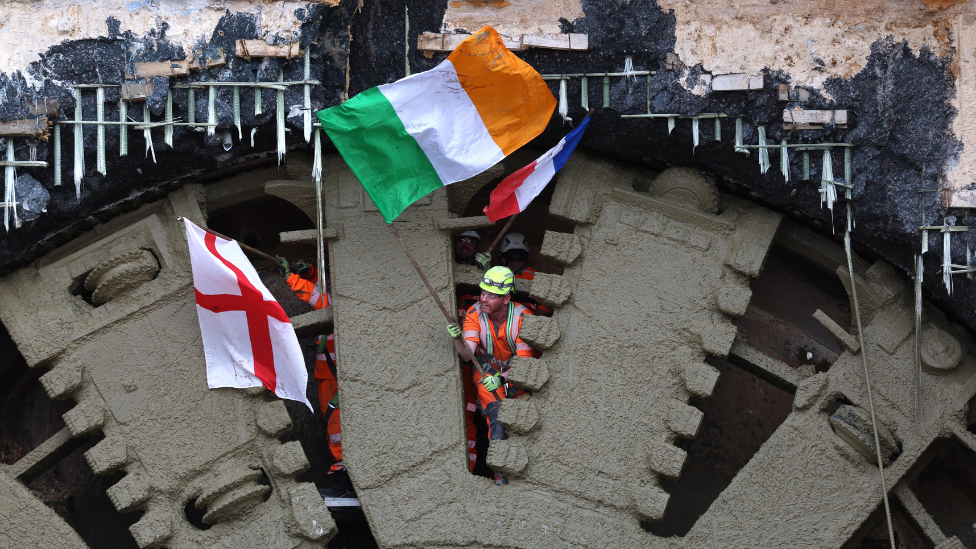Bat safety barrier will cost £100m - HS2 chairman
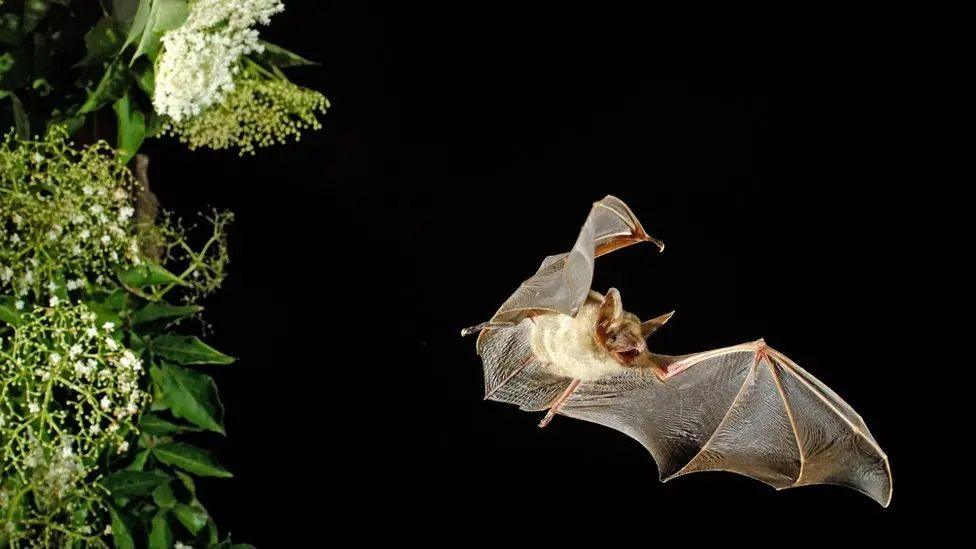
The current HS2 chairman asked "did people think about the bats?" when setting the project's budget
- Published
A special barrier that will be built to protect rare bats will cost £100m, according to the chairman of HS2 Ltd.
Sir Jon Thompson told a rail industry conference the bat protection structure in Buckinghamshire was needed to appease Natural England, as bats are legally protected in the UK.
The 1km (0.6 mile) curved barrier will cover the tracks alongside Sheephouse Wood near Calvert in Buckinghamshire, to prevent bats being disturbed by high-speed trains.
Sir Jon said there was "no evidence that high-speed trains interfere with bats".
"We call it a shed," he said. "This shed, you're not going to believe this, cost more than £100m to protect the bats in this wood."
Natural England said it had not required HS2 to "adopt this structure", but its role had been to "comment on whether the proposed mitigations will work".
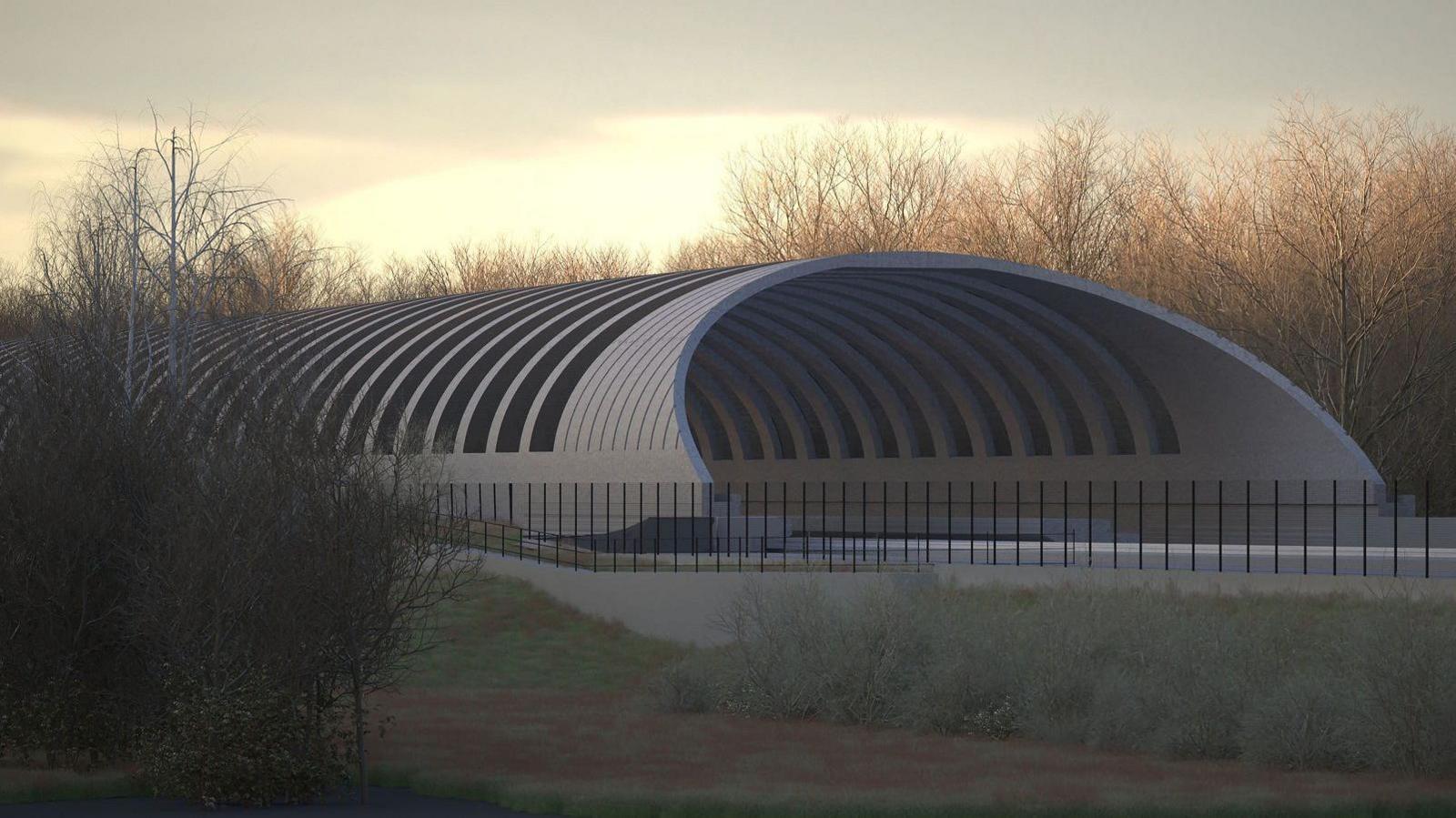
The barrier will allow bats to cross the high speed line without being disturbed (artist's impression)
Other more expensive options, including a bored tunnel and re-routing the railway, were considered.
After receiving the green light from Natural England for the design, HS2 Ltd was forced to spend "hundreds of thousands of pounds" on lawyers and environmental specialists because the local council did not approve the work, Sir Jon said.
"In the end, I won the planning permission by going above Buckinghamshire Council's head," he explained.
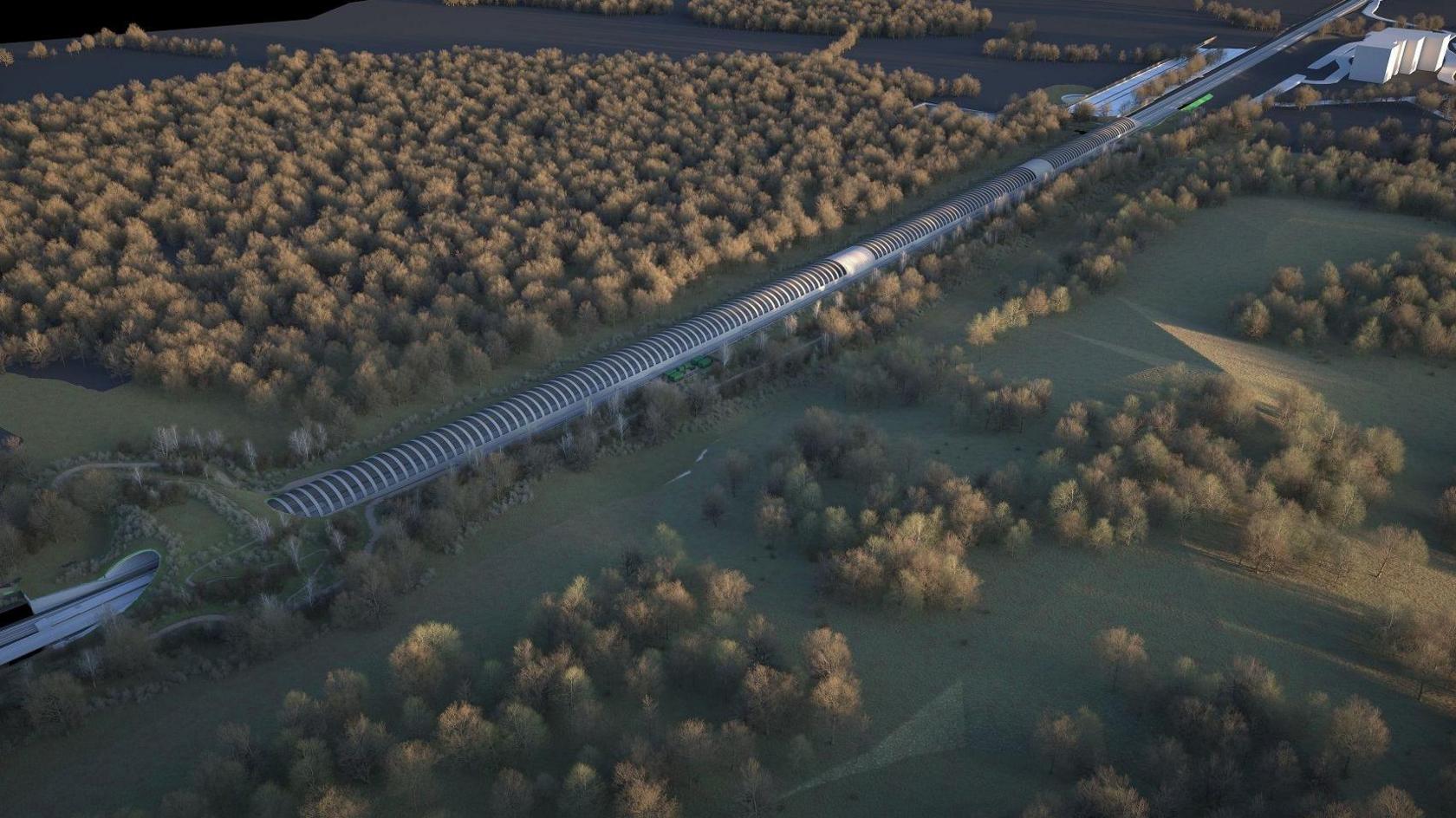
The bat protection structure will run for 1km over the railway line, costing £100m
Buckinghamshire Council opposes HS2 and has previously criticised the project, external for "unnecessarily damaging Sheephouse Wood".
The deputy cabinet member for HS2, Peter Martin, said: "Whilst the council wishes to protect species such as Bechstein's bats, one of the country’s rarest species, it was never supportive of what seemed like extremely excessive costs for a single structure.
"HS2 Ltd has always been adamant that the bat tunnel structure, which has been designed and built by HS2 Ltd’s own contractor, and the associated costs, were necessary, but it is not something we insisted on."
'Trite'
Sir Jon claimed the issue was an example of the UK's "genuine problem" with completing major infrastructure projects.
He told the Rail Industry Association's annual conference that HS2 Ltd had been required to obtain 8,276 consents from other public bodies in order to build phase one of the railway between London and Birmingham.
He said: "People say you've gone over the budget, but did people think about the bats [when setting the budget]?
"I'm being trite about it, but I'm trying to illustrate one example of the 8,276 of these [consents]."
Natural England Chief Operating Officer Oliver Harmar said: "Development and nature must go hand in hand".
"HS2 Ltd is required by legislation to avoid harm to the environment, and it is for them to make choices, consider risks, and factor in costs when deciding how to do this, whether by avoiding species and sites protected for nature or by investing in mitigation to limit harm where the route passes through sensitive sites."
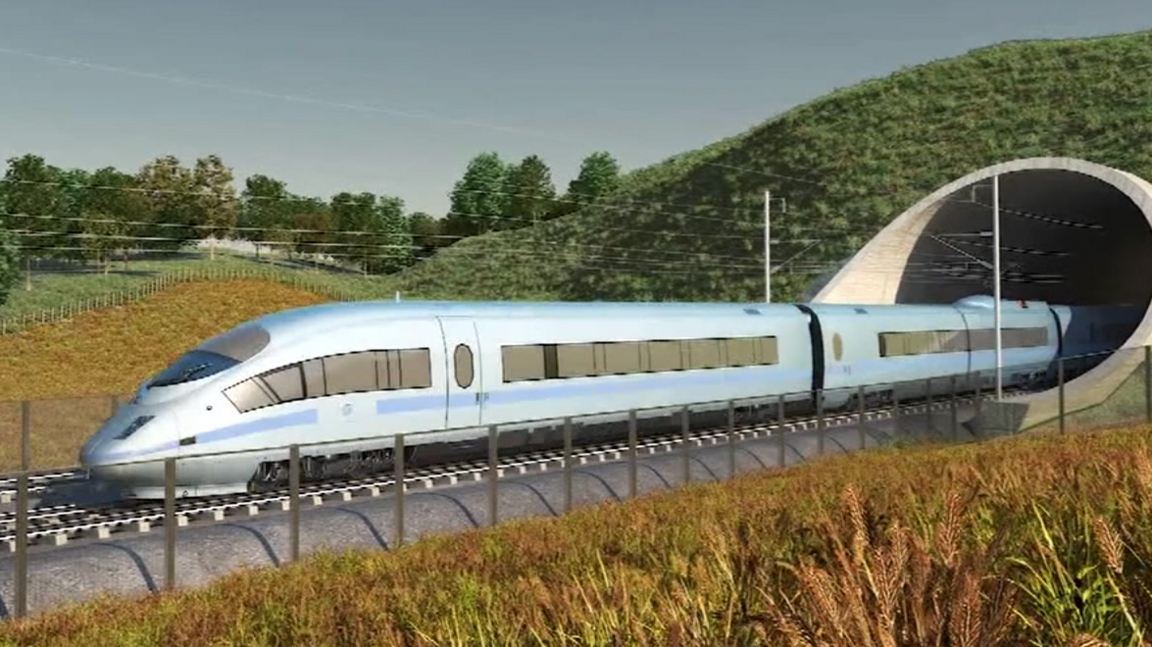
HS2 will see high speed trains running between London and Birmingham
Sir Jon, who has led the project since Mark Thurston left his role as chief executive in September 2023, warned in January that the estimated cost for phase one had soared to as much as £66.6bn - compared to the £37.5bn forecast in 2013.
A Department for Transport spokesperson said: "Just last month the transport secretary launched an independent review to get a grip on the cost of HS2 and ensure lessons are learned.
"We will continue to work closely with HS2 Ltd to deliver an environmentally responsible railway that protects the natural environment, while overseeing greater accountability of costs and ensuring taxpayers' money is put to good use."
Get in touch
Do you have a story suggestion for Beds, Herts & Bucks?
Follow Beds, Herts and Bucks news on BBC Sounds, Facebook, external, Instagram, external and X, external.
Related stories
- Published7 March 2024
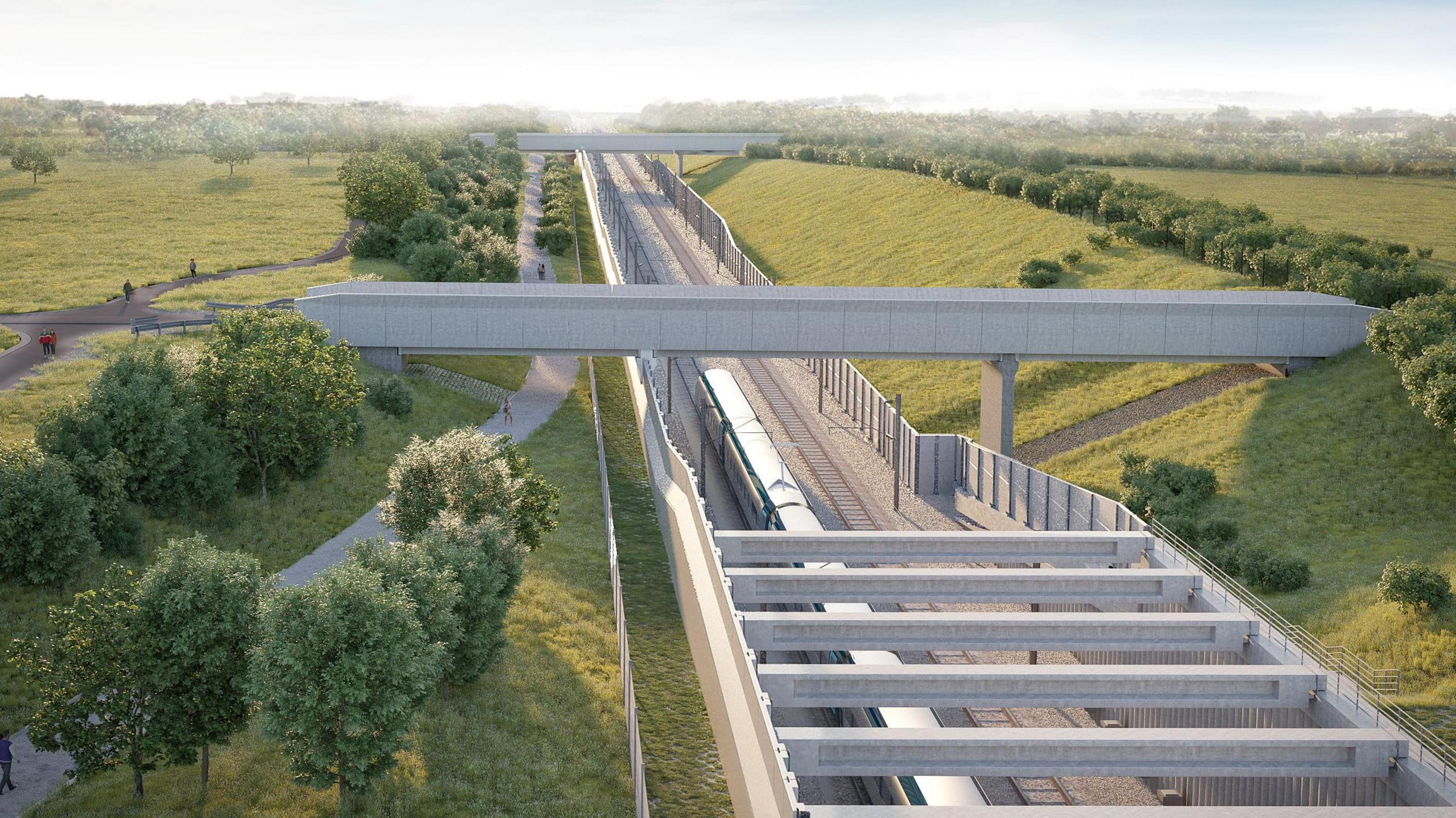
- Published26 February 2024
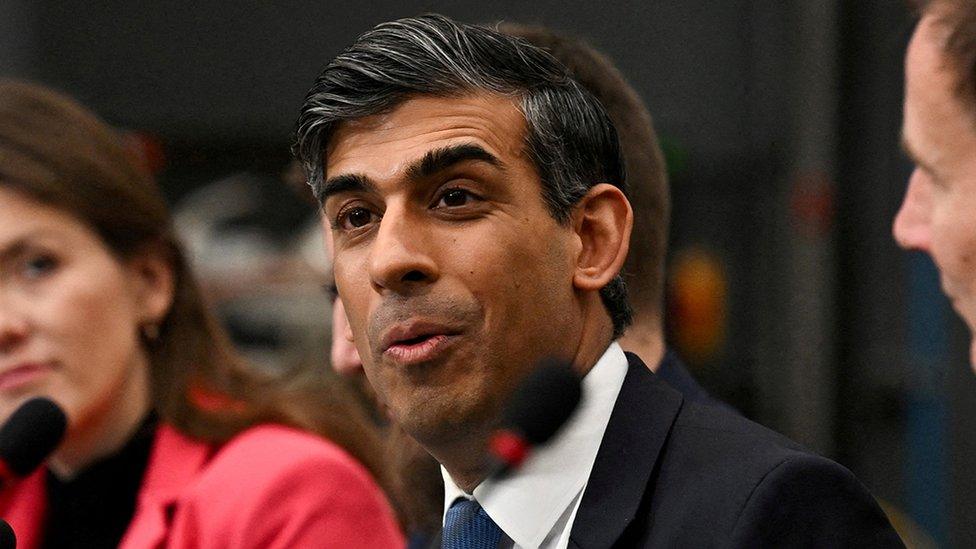
- Published22 March 2024
